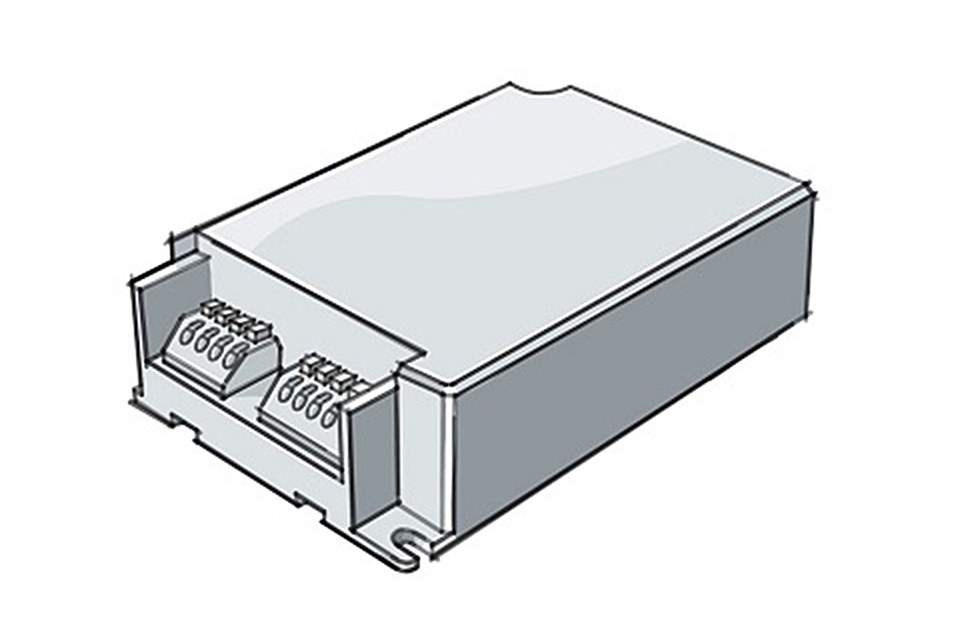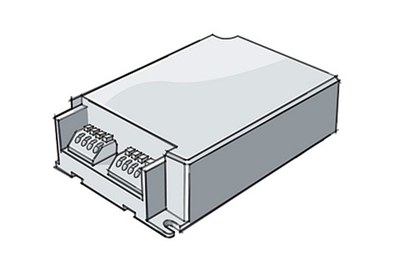Zhaga Book 13 - LED Drivers - for Download, Certified Products Database Improved
The Zhaga Consortium has published a new specification for LED drivers that are used in combination with separate LED modules. The introduction of standardized form-factors for LED drivers is expected to bring significant benefits for LED luminaire makers, including enhanced second-sourcing options and the ability to interchange different LED modules and drivers independently. Furthermore, Zhaga has updated its database of certified products and built a new search engine that allows LED luminaire makers and other users to find and compare components.
The new specification, Zhaga Book 13, can be downloaded from the Zhaga website (www.zhagastandard.org/books/book13) along with a White Paper that provides further explanation:
Book 13 provides precise specifications for the mechanical dimensions of a broad range of LED drivers. This enables the physical interchangeability of drivers in an LED luminaire. For example, Book 13 defines the maximum outer dimensions (demarcation) of the LED drivers, as well as defining the fixing points within a certain tolerance.
To enable the independent interchangeability of different drivers and modules, it is also necessary to specify the electrical interface between the module and the driver. Zhaga has chosen to reference the “LEDset1” specification from MD-SIG, an independent industry consortium, rather than write a new specification for the driver-module interface.
Broad family of drivers:
To serve all applications, Zhaga has defined a range of LED driver form-factors. Taking into account the specific dimensions per form-factor, Book 13 lists a total of 78 driver categories.
Initially, Zhaga reviewed the driver types that are already in common use, and created a list of 51 categories covering different shapes, sizes and applications. In order to reduce this high level of variation, Zhaga used the existing form-factors to derive two new sets of LED drivers with standardized dimensions. The new form-factors are known as type A and type B.
Type A drivers have compact dimensions and are typically used for applications such as down- and spot-lighting. Type B drivers have slim, or stretched, dimensions and are typically used in luminaires for office and industrial applications. There are 13 sizes for the type A category and 14 for type B.
Zhaga recommends that type A and type B form-factors should be used for the design of new luminaires and LED drivers. The inclusion of existing driver categories alongside type A and type B drivers should enable manufacturers of luminaires and drivers to implement a smooth transition to the new driver types.
The Zhaga Consortium has launched a fully rebuilt and significantly enhanced version of its online Certified Products Database:
The new tool, located at www.zhagastandard.org/products/certified, provides comprehensive search capabilities to allow visitors to find products, compare their properties, and evaluate whether they can be used interchangeably.
All products listed in the Certified Products Database have been tested by accredited third-party laboratories, and are in full compliance with the relevant Zhaga specification (Book). Certification ensures that the product has passed all the required thermal, electrical and photometric tests. This goes far beyond checking for basic mechanical compatibility in terms of overall dimensions or position of screw holes.
Additional data:
The new database contains a significantly enhanced set of data for each product. A set of filters is provided so that users can narrow their search according to their own application requirements. For example, after selecting a product type, users can filter the results according to product dimensions, or operating voltage, or luminous flux range, or many other properties.
Side-by-side evaluation:
Having filtered the results, the user can then select up to 3 products and view a side-by-side comparison of key properties, not just those that are restricted by Zhaga. This helps the user to find interchangeable components that match the application requirements.
Traceability:
The database can be used to confirm a manufacturer’s claim of Zhaga compatibility. Any products not listed in the database are not certified.
Data verification:
For some properties, such as the colour temperature of LED modules, the values are not restricted by Zhaga. Even so, the values must be supplied by the manufacturer so that products can be compared accurately. Zhaga’s third-party testing procedure includes the verification of manufacturers’ data, which adds value to the database as a reliable source of information.
New product generations:
The database contains some older-generation products that are no longer available from the manufacturer. Typically these have been superseded by next-generation versions, which are interchangeable with the older products but have upgraded performance. Zhaga certification means that luminaire makers can select and use next-generation products without needing to make significant changes to their luminaire designs.
Different product types:
The Certified Products Database covers a range of product types, including LED modules, integrated LED light engines, holders and LED luminaires. New products types that will be added in the coming months include LED drivers and chip-on-board (COB) LED arrays.
About Zhaga:
Zhaga is a global lighting-industry consortium that is standardizing LED light engines and associated components, including LED modules and LED drivers. This helps to streamline the LED lighting supply chain and to simplify LED luminaire design and manufacturing.
By focusing on interfaces, Zhaga ensures that certified components are interchangeable, while at the same time allowing component suppliers and luminaire manufacturers to differentiate their products with innovative design and technology.
About MD-SIG:
MD-SIG and Zhaga are separate organizations. For more information on MD-SIG and LEDset, see: www.zhagastandard.org/knowledge/md-sig


